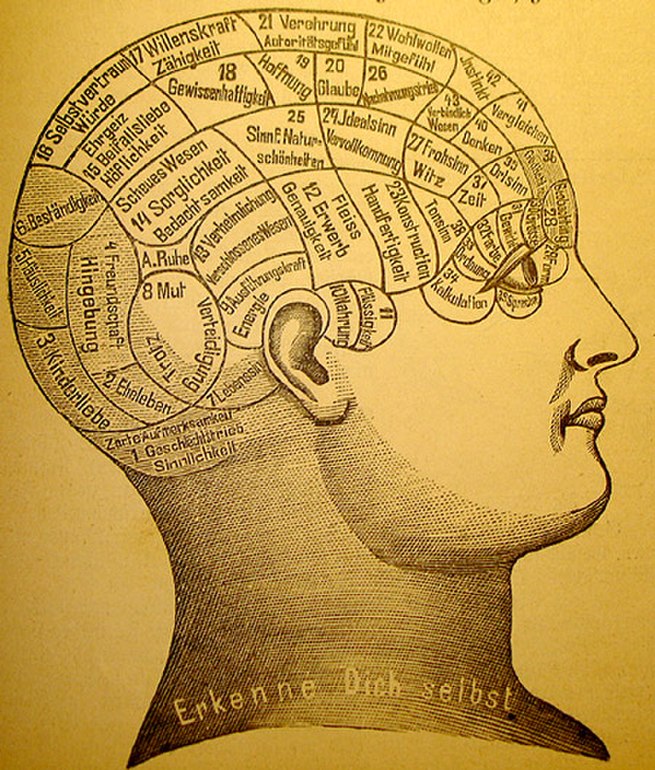
-
Mind
The mind is a set of cognitive faculties including consciousness, perception, thinking, judgement, language and memory. It is usually defined as the faculty of an entity’s thoughts and consciousness. It holds the power of imagination, recognition, and appreciation, and is responsible for processing feelings and emotions, resulting in attitudes and actions.There is a lengthy tradition in philosophy, religion, psychology, and cognitive science about what constitutes a mind and what are its distinguishing properties.
One open question regarding the nature of the mind is the mind–body problem, which investigates the relation of the mind to the physical brain and nervous system. Older viewpoints included dualism and idealism, which considered the mind somehow non-physical. Modern views often center around physicalism and functionalism, which hold that the mind is roughly identical with the brain or reducible to physical phenomena such as neuronal activity., though dualism and idealism continue to have many supporters. Another question concerns which types of beings are capable of having minds. For example, whether mind is exclusive to humans, possessed also by some or all animals, by all living things, whether it is a strictly definable characteristic at all, or whether mind can also be a property of some types of human-made machines.Whatever its nature, it is generally agreed that mind is that which enables a being to have subjective awareness and intentionality towards their environment, to perceive and respond to stimuli with some kind of agency, and to have consciousness, including thinking and feeling.The concept of mind is understood in many different ways by many different cultural and religious traditions. Some see mind as a property exclusive to humans whereas others ascribe properties of mind to non-living entities (e.g. panpsychism and animism), to animals and to deities. Some of the earliest recorded speculations linked mind (sometimes described as identical with soul or spirit) to theories concerning both life after death, and cosmological and natural order, for example in the doctrines of Zoroaster, the Buddha, Plato, Aristotle, and other ancient Greek, Indian and, later, Islamic and medieval European philosophers.
Important philosophers of mind include Plato, Descartes, Leibniz, Locke, Berkeley, Hume, Kant, Hegel, Schopenhauer, Searle, Dennett, Fodor, Nagel, and Chalmers. Psychologists such as Freud and James, and computer scientists such as Turing and Putnam developed influential theories about the nature of the mind. The possibility of nonbiological minds is explored in the field of artificial intelligence, which works closely in relation with cybernetics and information theory to understand the ways in which information processing by nonbiological machines is comparable or different to mental phenomena in the human mind.The mind is also portrayed as the stream of consciousness where sense impressions and mental phenomena are constantly changing
-
Psyche (noun)
The human soul, mind, or spirit.
-
Psyche (noun)
The human mind as the central force in thought, emotion, and behavior of an individual.
-
Psyche (noun)
A small white Leptosia nina, family Pieridae, of Asia and Australasia.
-
Psyche (interjection)
Used abruptly after a sentence to indicate that the speaker is only joking.
-
Psyche (verb)
To put (someone) into a required psychological frame of mind.
-
Psyche (verb)
To intimidate (someone) emotionally using psychology.
-
Psyche (verb)
To treat (someone) using psychoanalysis.
-
Mind (noun)
The ability for rational thought.
“Despite advancing age, his mind was still as sharp as ever.”
-
Mind (noun)
The ability to be aware of things.
“There was no doubt in his mind that they would win.”
-
Mind (noun)
The ability to remember things.
“My mind just went blank.”
-
Mind (noun)
The ability to focus the thoughts.
“I can’t keep my mind on what I’m doing.”
-
Mind (noun)
Somebody that embodies certain mental qualities.
“He was one of history’s greatest minds.”
-
Mind (noun)
Judgment, opinion, or view.
“He changed his mind after hearing the speech.”
-
Mind (noun)
Desire, inclination, or intention.
“She had a mind to go to Paris.”
“I have half a mind to do it myself.”
-
Mind (noun)
A healthy mental state.
“I, ______ being of sound mind and body, do herebynb…”
“You are losing your mind.”
-
Mind (noun)
The non-material substance or set of processes in which consciousness, perception, affectivity, judgement, thinking, and will are based.
“The mind is a process of the brain.”
-
Mind (verb)
To remember. from 14th c.
-
Mind (verb)
To attend to, concern oneself with, heed, be mindful of. from 15th c.
“You should mind your own business.”
-
Mind (verb)
To dislike, to object to; to be bothered by. from 16th c.
“I wouldn’t mind an ice cream right now.”
-
Mind (verb)
To look after, to take care of, especially for a short period of time. from 17th c.
“Would you mind my bag for me?”
-
Mind (verb)
To make sure, to take care (that). from 17th c.
“Mind you don’t knock that glass over.”
-
Mind (verb)
To be careful about. from 18th c.
-
Mind (verb)
Used to make something you have said less strong.
“I’m not very healthy—I do eat fruit sometimes, mind.”
-
Mind (verb)
To have in mind; to intend.
-
Mind (verb)
To put in mind; to remind.
-
Psyche (noun)
a Hellenistic personification of the soul as female, or sometimes as a butterfly. The allegory of Psyche’s love for Cupid is told in The Golden Ass by Apuleius.
-
Psyche (verb)
variant spelling of psych
-
Psyche (adjective)
variant spelling of psych
